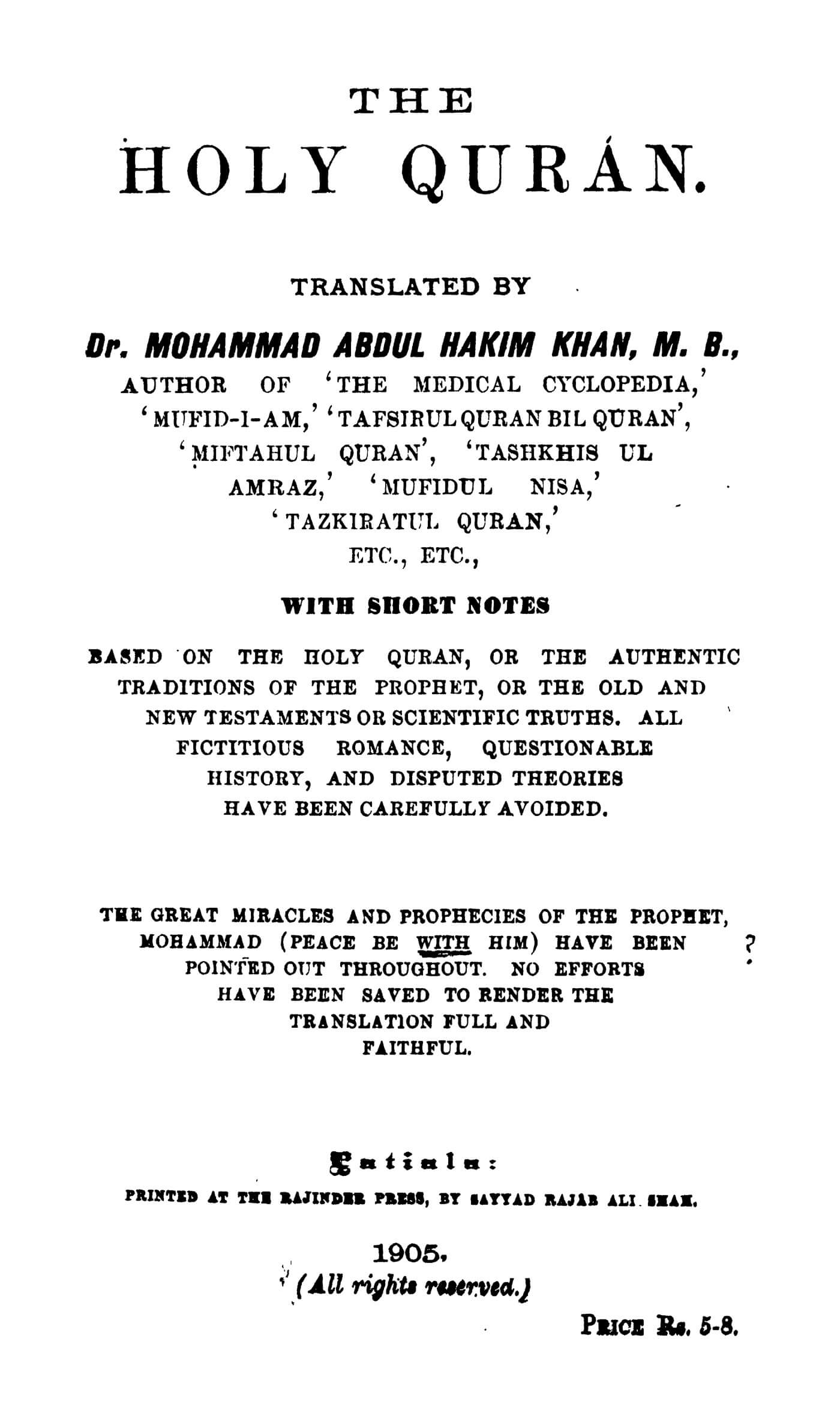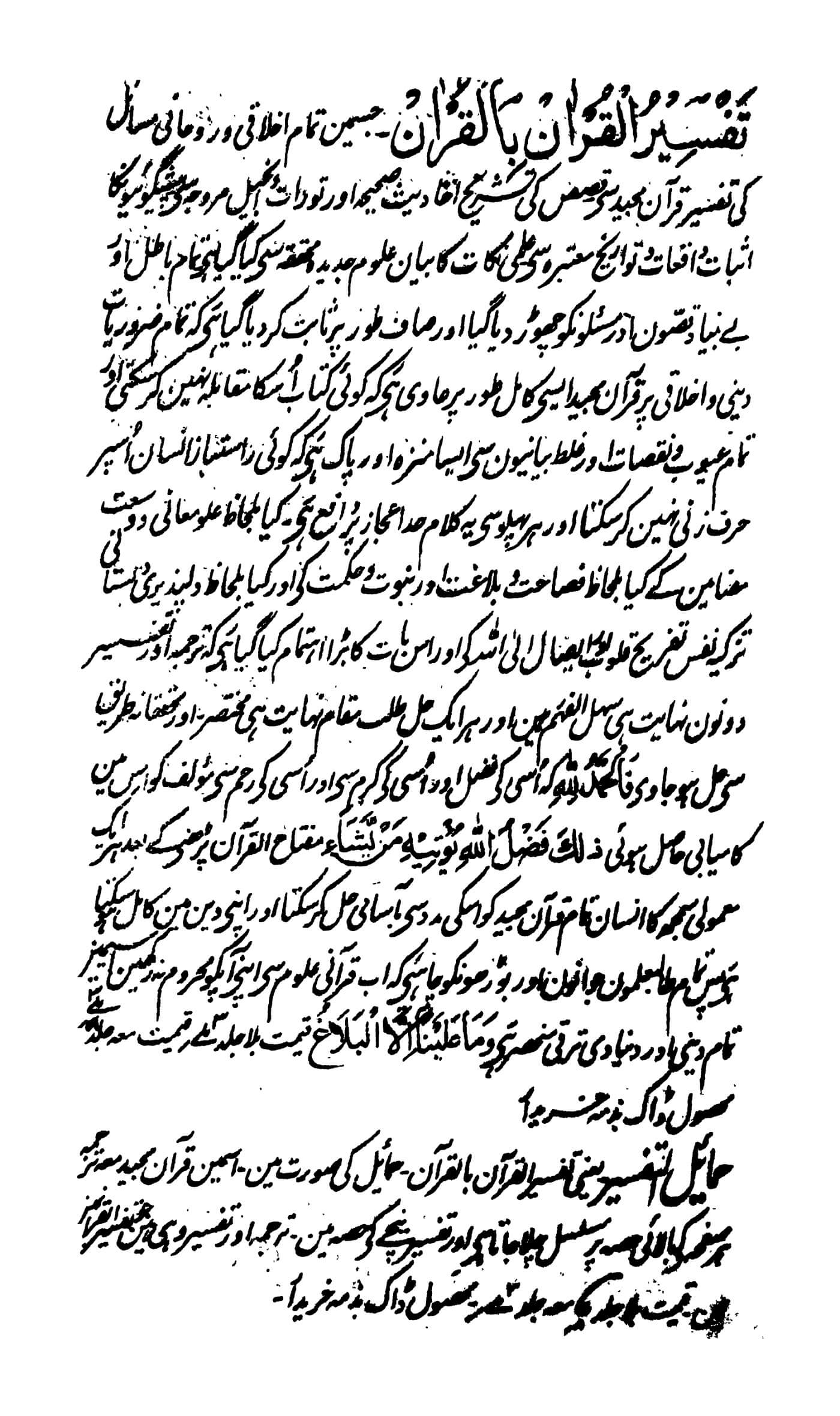The Holy Qurán
First Edition (1905)
The Holy Qurán
Description
Mohammad Abdul Hakim Khan (c. 1900s), physician, lived in early twentieth century British India. Apart from translating the Quran into English in 1905 and authored several books on the Quran in Urdu and on medicine, few biographical details are available about Khan. His translation is best described as a response to the anti-Islam missionary propaganda of the time than an scholarly attempt to translate the Quran. For more than a century his work has escaped critical scrutiny as he was generally hailed as the first Muslim to translate the Quran from Arabic to English, although this fact has later been doubted as he more correctly is the first Ahmadiyya translator of the Quran. In his translation, he omits any affiliation to Ahmadiyya, but from his view on different Islamic and Quranic doctrines (e.g. view on Jesus, doctrines of miracles, angelology, jinn, bounties of Paradise etc.) it can be deduced that this is actually an Ahamadi translation of the Quran. Some reports state that in his last years of his life, he reverted to Islam, nonetheless, his English translation abounds Ahamadiyya beliefs. Khan had limited knowledge of English as reflected in the translation.
About the author
Mohammad Khan
- Born: c. 1900s
- Full name: Mohammad Abdul Hakim Khan
- Other names: Mohammad A. H. Khan Khan, Mohammad Abdul Hakim Khan, Mohammad Abdul H.
- Creed: Muslim
Editions
Only published once, first edition:
- 1905 ——— The holy Qurán : with short notes based on the holy Quran, or the authentic traditions of the prophet, or the old and new testaments or scientific truths : all fictitious romance, questionable history, and disputed theories have been carefully avoided (WorldCat)


